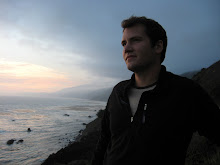It was an eventful week in the field. I had a couple close calls and a lot of tough situations to deal with. Besides the non-research related experience of blowing out a tire at 80mph on I-19 to border and changing it in the scorching hot, mid-day sun while traffic whizzed past me, I had to contend with a blackout at the shelter. Mid-interview the power cut off. There were over 70 people arriving to a pitch black, scorching hot shelter. It was chaos. People were bumping into each other and arguing. We were forced to kick out five guys for being drunk. The women were absolutely terrified. I spent 20 minutes convincing a woman that they have separate quarters and will be able to take a shower. I went to buy some flashlights but when I got back around 12:00 am, the lights were back on. I should have gone over there earlier. It was a long three hours of darkness as it was.
On top of the commotion, I talked to a 34 year old man from Apatzingan, Michoacan named Jorge. He had just been deported to Mexico after walking through the desert for 6 days, lost and alone. Originally part of a group of 29 people, he, four others and a guide went in a their small group to cross. It is common for groups to be divided like this to avoid detection or apprehension of everyone. After three days of being lost in the 110 degree Arizona desert, Jorge began begging the coyote for water. He said that the coyote hit him in the face, threw him on the ground and began kicking him. I noticed that his jaw was still badly swollen and the skin had been removed from a chunk of his elbow from the fall. After the beating he left the group and began searching for border patrol to turn himself in. Jorge found some houses and began knocking on doors, looking for someone to help him. He drank water from a hose, but it tasted like chemicals. He saw that the screen on a window to a vacant house was ajar so he broke in and drank some juice and ate food from the refrigerator. A man surprised Jorge but it was a passerby who had seen him enter. Although he did not speak Spanish the man informed him to leave the house and gave Jorge ten dollars. He went back to the desert and was lost again. He stumbled upon the rest of his group and they were all dead. Among the group was a woman and her ten year old son, and a fifteen year old traveling alone. He asked me if I could imagine losing a son in the desert. The parents do not know he is dead. They may never find out for sure. People disappear in the desert and no one knows.
Jorge said that he will not try to cross again. He had spent 9 years in the U.S. but was arrested when returning a gift to a store. According to him, he had no receipt and they accused him of stealing the item and trying to return it. His mother hired a lawyer to get him out, but they found out he was illegal and deported him after a week in holding. He tried to cross in San Luis Rio Colorado, on the border between Arizona and California. Luckily the consul has offered to buy his full bus ticket. Jorge said that he plans on going to Uruapan and waiting for his Aunt that lives in Tijuana to send his belongings to him so he can arrive in his hometown and look like a success and not a failure. He said that he will not tell anyone what happened to him because he is embarrassed about not succeeding in the U.S.
I suspect this is a frequent sentiment. I have been told time and again that people had no idea what they were in for before they crossed, despite having friends and family in the U.S. There is a macho attitude about working in the U.S. that reminds me of military service. It is a right of passage. You do it to improve your social and economic standing in your community. There is a great deal of risk involved. There is the possibility of Post Traumatic Stress Disorder. And, because it is a test of one's man-hood, either through preforming a service to one's country through the act of fighting in the military or risking the treacherous crossing to be able to work and support a family back home, there is a stigma attached to complaining about it or discussing how hard it is. Failure in both is a stigma. I have seen it in rural Mexico and I have seen it in rural Virginia. There needs to be more psychological services and support available to both groups.
Subscribe to:
Post Comments (Atom)





Joy sent me the link to your blog, Jeremy. I am completely ignorant of what goes on there, so your postss are interesting to me. I will read more.
ReplyDelete